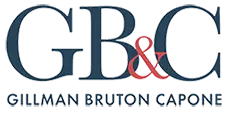Banks, consumer lenders, and the politicians who enjoy their financial support, often argue that those seeking a fresh start in the Bankruptcy Courts seek to discharge their debt when they encounter the slightest bump in the financial road. They contend that those who seek the protection of the Bankruptcy Courts under the provisions of a consumer “Fresh Start” Chapter 7 Bankruptcy should be able to do so after they have made a good faith effort to repay their debt before filing bankruptcy. A recent study contradicts these contentions.
“Life in the Sweatbox” a study conducted by the Consumer Bankruptcy Project (CBR) found that debtors often struggled for years to pay their debt and, only after prolonged financial hardship, did they seek relief by filing Bankruptcy.
Two-thirds of people who file bankruptcy reported struggling with their debts for two or more years before filing. One-third of people reported struggling for more than five years, double the frequency from the CBP’s survey of people who filed bankruptcy in 2007.” Credit Slips, Feb 20, 2018.
During their time in the “Sweatbox”, they are subject to constant harassment by debt collectors and the loss of personal property and, in some cases, their homes. Perhaps, most importantly, the debtors frequently have their incomes and savings reduced by wage garnishments and/or bank levies and use exempt savings to pay dischargeable debt. It is by far the majority of cases where we advise our clients that we wish they had come to see us sooner.
One particularly unfortunate example is the use of retirement savings to pay credit card debt. In almost all cases, retirement savings (i.e. pensions, 401(k), 403(b), IRAs, tax-deferred retirement annuities), are not included in the assets which must be used to repay consumer debt such as credit cards, medical bills, and personal loans. However, in a good faith effort to repay their creditors, our clients often have exhausted these forms of protected savings which will impact their ability to maintain financial security after retirement.
Student loans also present an even more challenging “Sweatbox” due to the legal limitations on options to those who are unable to pay. CBP likened the Student Loan Sweatbox to the 2008 Financial Crisis and correctly noted the even greater challenge due to the fact that the Bankruptcy Code provides limited options to borrowers.
We have represented consumer debtors for the past four decades. During that time, with few exceptions, our clients file a Chapter 7 Bankruptcy Case due to circumstances beyond their control. Loss of employment, under-employment, divorce, illness and medical debt, have been the constant causes of the serious financial difficulties experienced by our bankruptcy clients. Despite their struggles, and the fact that filing bankruptcy is seen as a last resort, our clients are too often burdened by a sense of guilt and failure.
Those who utilize the consumer ‘fresh start” provisions of the Bankruptcy Code should take comfort from the fact that debt forgiveness is a biblical remedy acknowledged in the Old Testament. In fact, until 2005 when the Bankruptcy Code was amended, the Code permitted consumer debtors to seek a fresh start every seventh year – precisely the time the Old Testament provided for “debt forgiveness”. (“At the end of every seven years you shall grant a release. And this is the manner of the release: every creditor shall release what he has lent to his neighbor or his brother.” Deuteronomy 15: 1-3).
Though the 2005 Amendments extended the time between Chapter 7 Discharges from six (6) years to eight (8) years, the concept that relief from debt must be offered is, as the saying goes, as old as the Old Testament. Though it is hard to argue against the morality of debt relief, it is also wise and accepted economic theory to offer this relief.
As bankruptcy attorneys with more than 50 years of experience, we have thousands of examples of clients who have struggled with the “Sweatbox” before seeking a financial fresh start by filing a Chapter 7 Bankruptcy case. We hope that those facing serious debt problems do not allow false information or their own sense of guilt or shame avoid the assistance that they may be able to find in relief that is as old as time.


